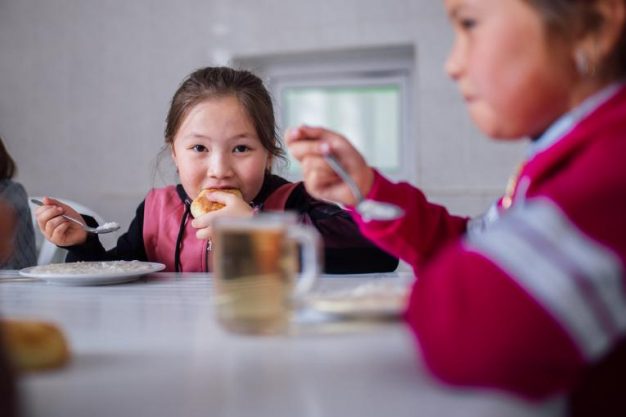
Billions of missed school meals threaten child nutrition crisis
School meals, often the one nutritious daily meal that children get, must be prioritized as part of any plans to reopen schools, says global children’s charity UNICEF and the World Food Programme.
A joint report by the two organisations has revealed that more than 39 billion in-school meals have been missed globally since the start of the COVID-19 pandemic due to school closures, and that 370 million children, many of whom are reliant on school meals, are missing out
Henrietta Fore, Executive Director of UNICEF, said: “Despite clear evidence that schools are not primary drivers of COVID-19 infections, millions of children are facing school closures around the world. Children who depend on schools for their daily meals are not only losing out on an education but also on a reliable source of nutrition.
Millions are facing school closures around the world
“As we respond to the COVID-19 pandemic and await vaccine distribution, we must prioritize the reopening of schools and take action to make them as safe as possible, including through renewed investments in proven infection prevention measures like clean water and soap in every school around the world.”
The report, COVID-19: Missing More Than a Classroom, highlights how almost 24 million schoolchildren are at risk of dropping out of school due to the pandemic – reversing progress made in school enrolment in recent decades. School feeding programmes can provide incentives for the most vulnerable children to return to school.
“Missing out on nutritious school meals is jeopardizing the futures of millions of the world’s poorest children. We risk losing a whole generation,” added David Beasley, Executive Director of the WF. “We must support governments to safely reopen schools and start feeding these children again. For many, the nutritious meal they get in school is the only food they will receive all day.”
In some countries, all school feeding programmes were cancelled
During the pandemic, there has been a 30 per cent overall reduction in the coverage of essential nutrition services including school feeding, micronutrient supplementation, and nutrition promotion programmes in low- and middle-income countries, as well as programmes for the treatment of severe malnutrition in children. During nationwide lockdowns in some countries, all school feeding programmes were cancelled.
Global data on the overall impact of school closures on children’s nutrition is limited. However, country-level studies, previous knowledge of the impact of crises on food security and nutrition, and existing nutrition deficits among school-age children and adolescents are cause for significant concern, the report says.
Schools meals are not only vital in ensuring children’s nutrition, growth and development, they also provide a strong incentive for children – especially girls and those from the poorest and most marginalized communities – to return to school once restrictions are lifted. The longer children are out of school, the greater the risk that they will drop out of education altogether. Girls face the added risk of forced transactional sex or early marriage.
WFP has been supporting governments to adapt their school meals programmes during school closures. The report notes that more than 70 countries have delivered take-home rations, cash transfers or food vouchers, providing a valuable, interim solution for millions of children. In the first 9 months of 2020, more than 13 million schoolchildren received WFP school-based support as compared to 17.3 million the previous year.




